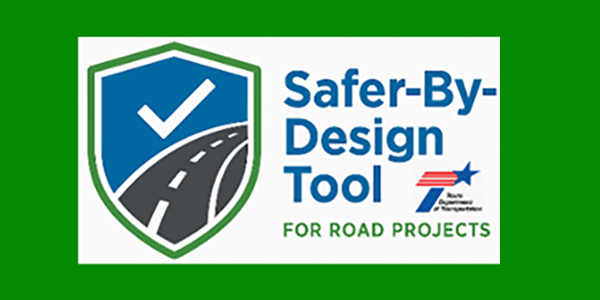Safer by Design (formerly Safety Scoring Tools)

Safer by Design Tool
Safety scoring tools, procedures, training, and more.
SBD training:
- Webinar video - part 1 - presentation (April 2025)
- Webinar video - part 2 - SBD training (April 2025)
- Webinar video - part 3 - FAQ (April 2025)
- Statewide webinar slides - A Brief How-to-use Introduction (April 2025)
- Statewide webinar slides - System Safety (April 2025)
- Statewide webinar slides (Feb 2024)
- Guide to urban tool (April 2024)
Additional safety analysis resources and tools:
Contact information
Khalid Jamil
Highway Safety and Operations Supervisor
Khalid.Jamil@TxDOT.gov
512-486-5171
Ragab Mousa
Highway Safety & Operations
Ragab.Mousa@TxDOT.gov
737-291-8295
Doyeon Kim
Highway Safety & Operations
Doyeon.Kim@TxDOT.gov
512-952-9911
SBD evolution
In 2016, the Texas Transportation Commission launched a major safety investment initiative. Building on this effort, the Commission adopted a Minute Order in 2019 with the goal to reduce the number of deaths on Texas roadways to ZERO by 2050 and by half by 2035. To support this goal, a Council on System Safety work group was established in 2018. This group included staff from both Districts and Divisions, bringing together expertise in planning, design, construction, and maintenance. The council was tasked with identifying engineering solutions that could meaningfully improve roadway safety.
The primary objective was to develop a simple, practical methodology for optimizing safety considerations before project implementation. To support this effort, the TxDOT Design Division engaged the Texas A&M Transportation Institute to assist in developing an Excel-based tool. This tool applies a straightforward, data-driven approach to incorporate safety into roadway design decisions.
The latest Safer by Design tool (formerly Safer by Design Tools) integrates urban and rural tools into a single web-based platform for evaluating roadway segments and intersections in urban and rural projects. The overarching goal is to prevent crashes and reduce the number of fatalities and injuries on Texas roadways.
Purpose
To assist designers in making safety-driven decisions during the project development and design process.
Tool elements
The Safer-By-Design tool was developed using the Highway Safety Manual (HSM) methodology, including Safety Performance Functions (SPFs) and Crash Modification Factors (CMFs), to be a user-friendly and straightforward tool. It evaluates safety impacts across five common input categories for both roadway segments and intersections: basic elements, geometric elements, traffic elements, pedestrian elements, and bicycle elements. The sixth category is roadside elements for roadway segments and control elements for intersections, which are also part of the SBD input data and safety score analysis.
Application/use
As of November 26, 2019, the safety scoring tools became available for use on applicable projects. Districts were encouraged to begin using the tools during the project scoping phase to assess the safety implications of design choices. Starting with the April 2020 letting, districts have been required to document both the initial and final safety scores on Form 1002, submitted with interim and final PS&E packages.
Monthly summaries of scoring data are reported to the TxDOT Administration and Transportation Commission, serving as a performance measure of the agency’s efforts to enhance system safety. For each applicable project, the report highlights:
- Key factors contributing to improved roadway safety
- Constraints limiting achievement of the optimal score, including identification of the design elements needed, along with high-level estimates of additional cost and time required to implement them.
Monthly safety scoring results are compiled and made available on the Design Division's Safety Scoring Tool SharePoint Site.